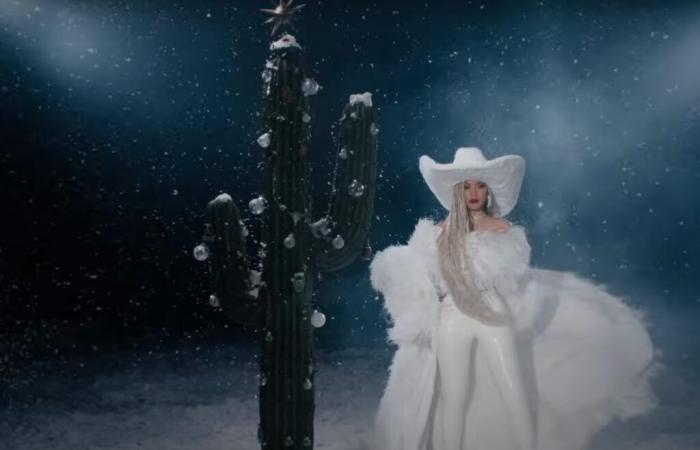It’s no surprise that a Beyoncé concert comes with a hefty price tag, but how exorbitant is it?
The 43-year-old and 32-time Grammy Award-winning singer made her highly anticipated NFL Christmas Day debut with a never-before-seen live performance of tracks from her latest album, Cowboy Carter.
During halftime of the second game of the evening, between the Houston Texans and the Baltimore Ravens, Beyoncé lit up the stage accompanied by a group of dancers, including her eldest daughter, Blue Ivy Carter, as well as a marching band. She was also joined by Post Malone and Shaboozey, both featured on the album, who gave standout performances of “Levii’s Jeans” and “Sweet ★ Honey ★ Buckiin’”.
In a pre-recorded introduction, she made her appearance riding through the stadium tunnels on a white horse while singing “16 Carriages.” After coming down, she continued with a cover of The Beatles’ “Blackbird,” accompanied by singers Tiera Kennedy, Tanner Adell, Reyna Roberts and Brittney Spencer.
The electrifying performance, produced by Parkwood Entertainment and Jesse Collins Entertainment, is part of a three-project deal worth $60 million signed between Beyoncé and Netflix in 2019.
The first project with the platform was the concert documentary Homecoming: A Film by Beyoncéwho presented his performance during the Coachella festival in 2018. According to Varietythe cost of this first project was approximately $20 million.
“If we take that as true, that means this halftime performance costs $20 million,” Dan Ruchie, the founder of Trapital, a music and sports industry analytics company, told Andscape.
Les News tried to contact representatives for Beyoncé and Netflix for comment.
Before the Ravens defeated the Texans with a score of 31-2, the Kansas City Chiefs defeated the Pittsburgh Steelers 29-10, continuing their near-perfect 2024 season. Both of these games were broadcast live for the first time on Netflix in new three-year licensing deal with NFL for Christmas games worth a total of $150 million.
This Beyoncé Christmas show on Netflix highlights the growing connection between music and streaming platforms, raising questions about the value of live performance in the digital age. How do these projects influence the fan experience and the broader industry landscape?
- -





